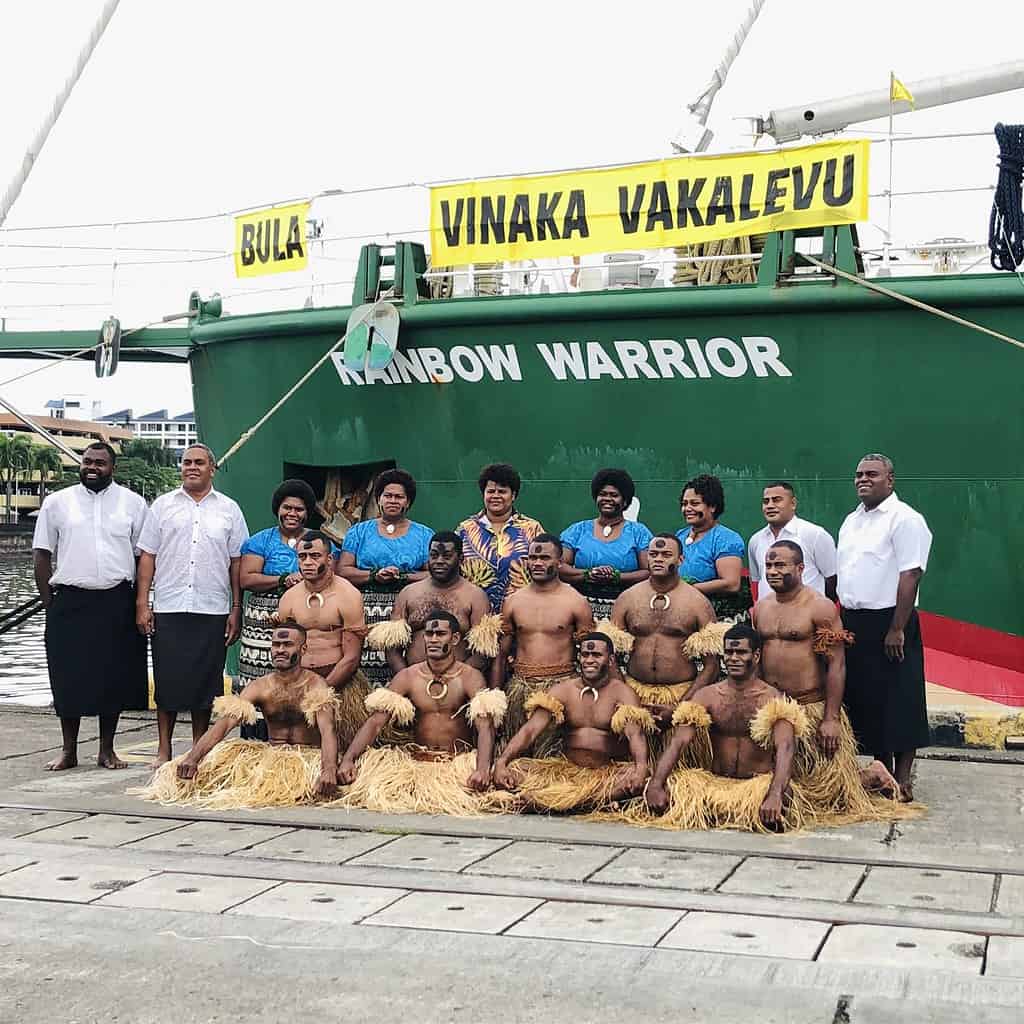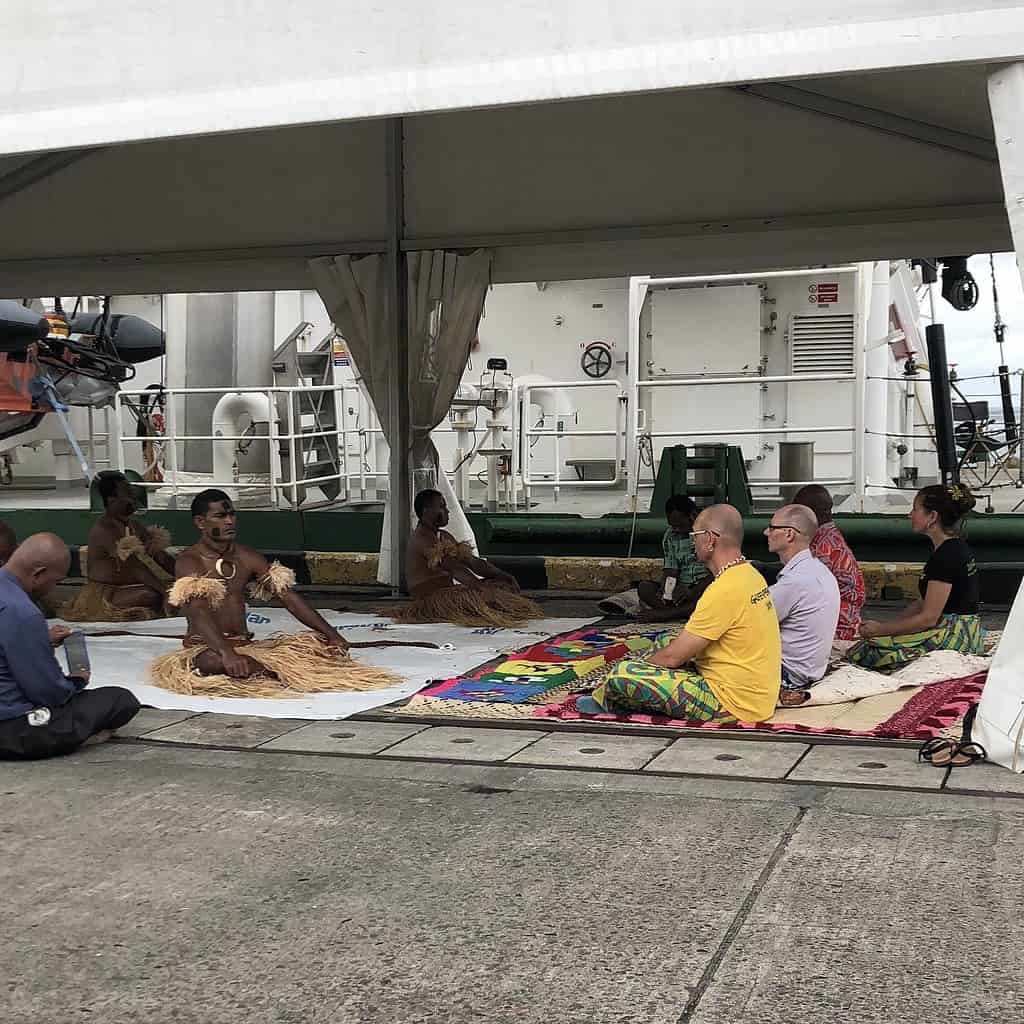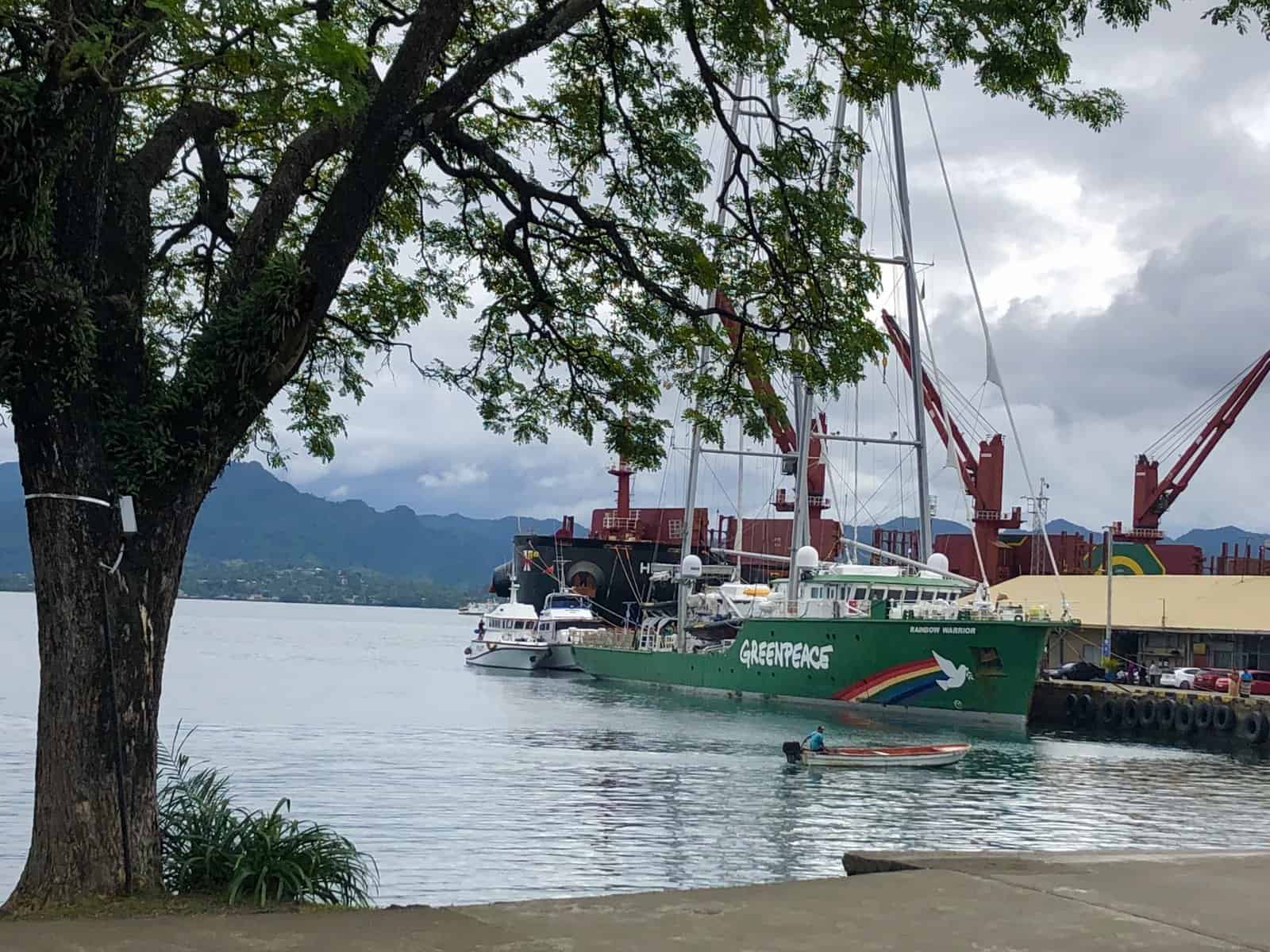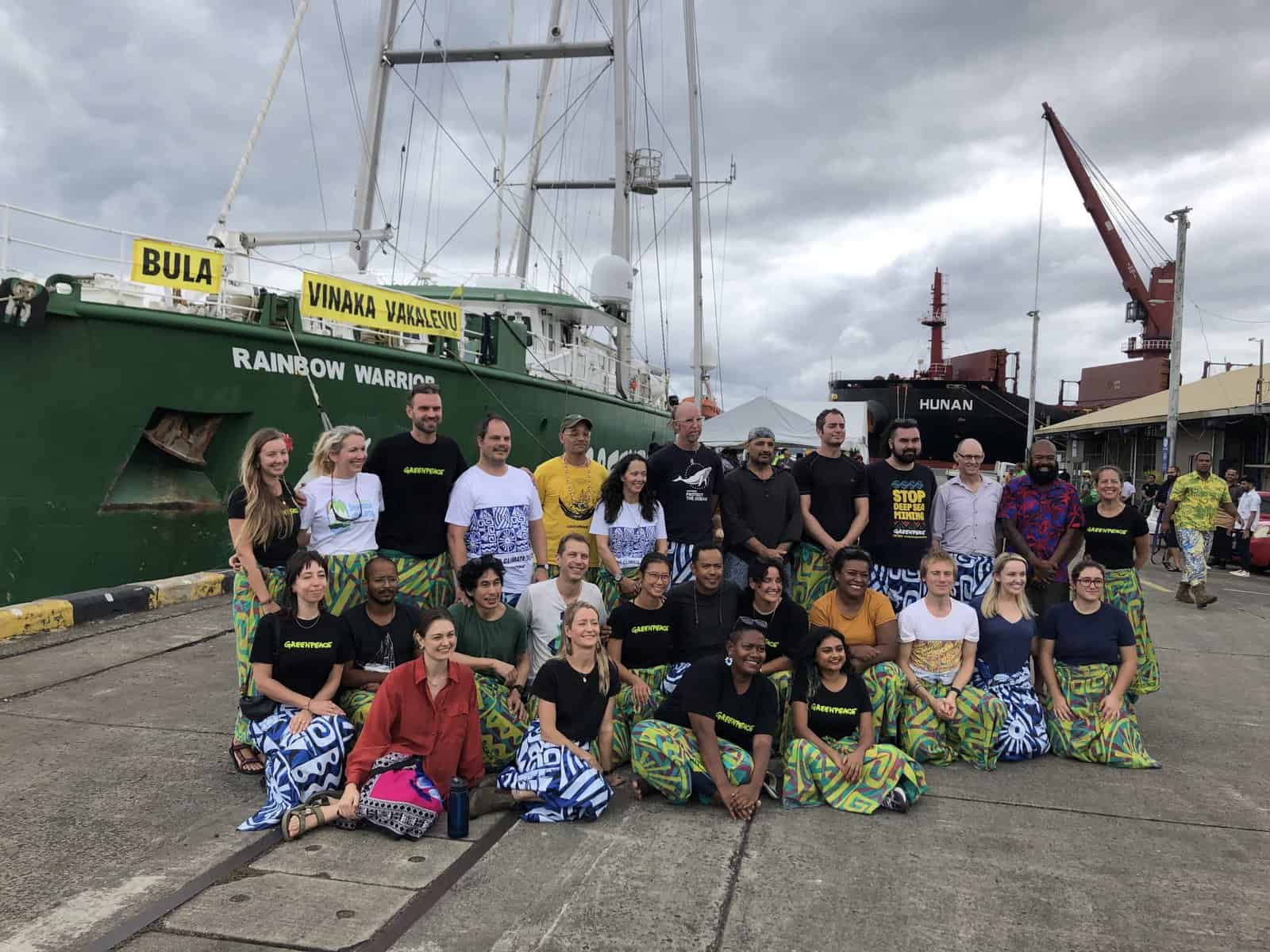The Greenpeace vessel Rainbow Warrior has arrived in Suva, the last stop of its Pacific tour carrying climate activists, Pacific campaigners and First Nation leaders.
The ship was greeted at the port with a traditional Fijian ceremony and meke (dance). It will stay in Fiji for two weeks, bearing witness with communities affected by climate change and to gather evidence for an advisory opinion at the International Court of Justice (ICJ), the highest court in the world.
“Rainbow Warrior is here to listen and walk with the leadership from the Great Ocean State of Fiji that has done so little to cause this climate crisis that the world is now in,” said David Ritter, CEO of Greenpeace Australia Pacific.
“Fiji holds significant diplomatic and economic ties with Australia. It faces severe impacts from intense cyclones, hurricanes, floods, droughts, and extreme temperatures, affecting both its GDP and community resilience.”
The Rainbow Warrior’s return to the Pacific Islands is an opportunity to strengthen relationships with civil society, non-governmental organisations, and allies in the region. Greenpeace’s focus is to collaborate with communities, amplify the visions of climate justice activists, and foster discussion, talanoa, action, and friendship.


“From Vanuatu to Tuvalu, we’ve witnessed firsthand the devastating impacts the climate crisis is unleashing on Pacific nations, who are fighting to protect their homes, their culture, and their future,” said Ritter. “What more will it take for governments to act as heat records are shattered around the world, floods and bushfires rage, and sea level rise threatens entire communities?”
Ritter added that after a decade of neglect, the Australian government had promised to mend its connection with the Pacific. And yet, the financial assistance given to the Pacific is insignificant in comparison to the billions of tax dollars that are invested annually in fossil fuel subsidies, a business that is directly impairing the human rights of Pacific people and states.
“The leaders of the Pacific area have stated time and time again that climate change is the biggest threat to the region. We want [Foreign] Minister [Penny] Wong to strongly advocate for the survival of the Pacific in Australia’s submission to the International Court of Justice,” he said.
The push to protect vulnerable nations by seeking an advisory opinion on climate harm, known as the ICJAO, was born in a classroom at the University of the South Pacific. The birth of this groundbreaking legal campaign brought climate change to the highest court in the world. To bring this full circle, Greenpeace will co-host a university open day with Pacific Island Students Fighting Climate Change (PISFCC), who played a vital role in the ICJAO campaign.
Vishal Prasad, Campaign Director of Pacific Islands Students Fighting Climate Change, said a successful ICJ advisory opinion would be a powerful tool to support bolder climate action globally.
“The climate crisis is a human rights crisis. Hundreds of millions of people in vulnerable countries like Fiji are having their livelihoods, health, food security, and cultures severely impacted,” said Prasad.
The campaign was launched in 2019 with Pacific leaders being asked to take it forward. In March 2023, the United Nations General Assembly unanimously voted for a resolution calling on the ICJ to establish the legal obligations of nations in addressing climate change.
“That was a historic achievement for the Pacific because the resolution call from the ICJ advisory was made by all Pacific countries,” said Prasad.
“We need monumental, global action, and we need it now. An advisory opinion from the International Court of Justice is exactly that. It would mean we could better enforce the Paris Climate Agreement and ensure human rights are at the centre of all climate responses.”
The Rainbow Warrior is carrying 30 members from all over the world.
On August 1st and 2nd, Greenpeace will co-host open days for the Suva community and schools.
Following this, the Rainbow Warrior will journey to neighbouring Rabi Island to commemorate World Indigenous People’s Day and stand in solidarity through a candlelit vigil, supporting global climate litigants making submissions to the International Court of Justice.

